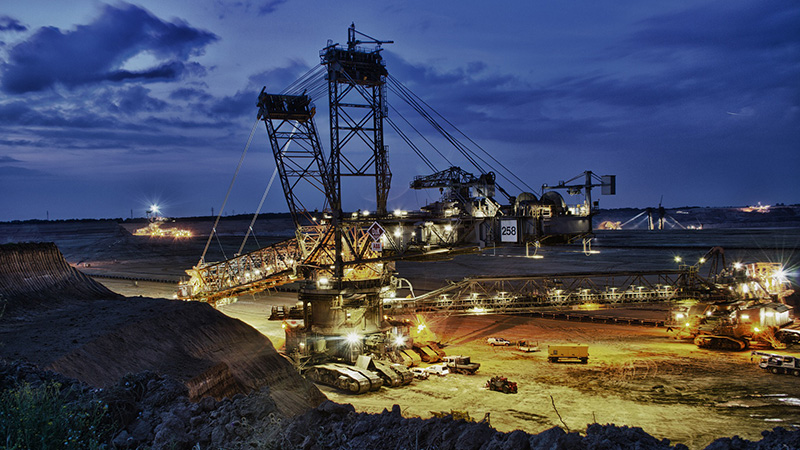The Swedish government is expected to decide this week whether to allow the sale of some of Europe’s most polluting assets.
At issue are state-owned Vattenfall’s brown coal mines and plants in Germany, which it wants to offload to Czech firm EPH.
That would go against UN climate deal struck in Paris, say critics, calling for the dirty fuel to be left in the ground.
Olivia Linander of 350.org urged the ruling parties to “show they take the Paris Agreement seriously” by blocking the transaction.
An opinion poll commissioned by Greenpeace, WWF and Swedish Society for Nature Conservation suggests the public is inclined to agree. Nearly half (49%) oppose the sale, compared to 27% in favour.
The figures are similar among voters for the Social Democrats, whose minister Mikael Damberg is responsible for the decision: 49% against, 32% for.
Weekly briefing: Sign up for your essential climate politics update
The results are likely to increase tension within the ruling coalition. Junior partner the Green Party campaigned on a fossil-free platform, but is publicly deferring to Damberg’s judgment.
Vattenfall expects to lose US$2.7-3.3 billion in the transaction, yet argues it is cheaper than holding onto the loss-making business.
Shedding the five opencast mines and four power stations will shrink the firm’s carbon footprint by two thirds – seen as desirable for its reputation and bankability.
Gerard Wynn, analyst with the Institute for Energy Economics & Financial Analysis, questioned whether it would really be more expensive for Vattenfall to decommission the mines.
“If it is about brand, it is not great if you are potentially going to create a big mess in Eastern Germany,” he said. “Which is more important, bankers or your voters?”
Report: Czech buyers of German coal plants linked to Panama Papers
A private company, EPH is betting on a continued demand for coal to supply back-up power when there is no wind or sun. It has acquired plants in the UK and Italy, benefitting from lucrative capacity payments.
That business model depends on the German government, which has yet to commit to a timeline for eliminating coal from the energy mix.
A keenly awaited strategy to slash emission 95% by 2050 has yet to emerge from internal wrangles between the environment and economics minsters.
In the shorter term, coal is clinging on in the face of rising competition from renewables. It raises the prospect Europe’s biggest economy could miss its 2020 emissions target.
Jan Kowalzig, a Berlin-based climate expert for Oxfam, said: “If the German government takes the Paris Agreement seriously and tries to meet this 2020 target, that is essentially a death sentence for the coal sector…
“Of course, that has to come with a social security plan for the affected workers.”
